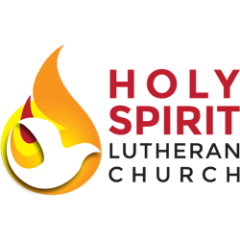Our recent texts from prophets like Amos have prompted me to raid my files. I came across an article written by Walter Brueggemann that originally appeared in the January 2020 installment of the Sojourners magazine. In this article Brueggemann opens a window into the politics of the era of Solomon. He describes the grandeur of the Solomon monarchy and the entire system that surrounded the temple. The military was a grand operation and meant to put on a show of how opulent the Solomon monarchy really was. The reach of the monarchy worked hand in hand with the temple system – working with priests to develop systems of exclusion masquerading as purity. That means they had the keys to the gate. They could say who could worship and receive the benefits of being in relationship with God. Make no mistake, this was about economics and power.
Into this clearly corrupt system came a series of prophetic voices. These prophetic voices spoke a different reality than the totalism of the Solomon monarchy. If you listen carefully, they sound an awful lot like the voice of Jesus who will come along many generations later. They lift up the exploitation of the vulnerable and the exclusiveness of the temple system. They offered hope for a preferred future – if you were one who was suffering and excluded. And we all know how well prophets were treated.
What does that have to do with us today? An awful lot. Our own systems are called something different, but we look more similar to the systems of totalism than we do to the images that are painted with poetry by our prophets. We have certainly had modern prophets. They have taken on the form of people like Rev. Dr. Martin Luther King Jr. who dared to dream of a preferred future. One that reflects the qualities of the Kingdom of God. And we treated him much in the same way that others with prophetic imagination have been treated.
We cling to totalism unawares. We are excellent at sleepwalking through life and pushing snooze on that prophetic voice. There are certainly consequences for doing this. Perhaps ones which we are experiencing right now. So, let’s talk about those underlying forces at work and let’s talk about the function of prophetic imagination. To do that I want to share a section of this article.
“The first prophetic task is to be clear on the forces and legitimacy of the totalism. And what we must recognize is that almost all of us—conservative and liberal, clergy and laity—are to some extent inured to the totalism. We take it as normative. And to take it as normative is a great narcotic that makes us passive and apathetic. Becoming clear and unambiguous about the force of totalism is a teaching point that we may have to work at.
The second task of prophetic imagination is that we have to pronounce the truth about the force of totalism that contradicts the purpose of God. That’s called prophetic judgement. What prophetic judgment amounts to is making the case that acquisitiveness leads to violence, that militarism leads to bankruptcy, that consumerism leads to the evaporation of citizenship, that ecological exploitation leads to chaotic weather, that silencing leads to brutality, and that exceptionalism leads to tribalism. It is a package that needs to be exposed at the teaching level of the religious community.
And the third task of prophetic imagination is to articulate the alternative world that God has promised and that is birthing before our very eyes. If we have eyes to see it. It is not often enough that for all the harsh judgment of Amos, Isaiah and Jeremiah, there runs through their rhetoric extraordinary promises about beating swords into plowshares and not learning war anymore. All of which have come to contemporary fruition in Martin Luther King, Jr.’s “I Have A Dream.” It is a dream that images a world that is completely alternative to the one we now live in.”
If you are feeling lost right now and you need direction, let me direct you first to Christ and to our prophets. They are bright lights in the darkness. They show us how to be courageous under the thumb of tyranny. They can help us to identify where our own blinders have been. And they can help us to see when our reactionary path doesn’t line up with God’s preferred future. You need to know whether the path you are following is of God or if it is simply the last gasp of the grip of totalism. And lastly dear hearts, be of good courage. May the challenge of this day bring the promise of God in the next.
God’s peace to you,
Pr. Gretchen

